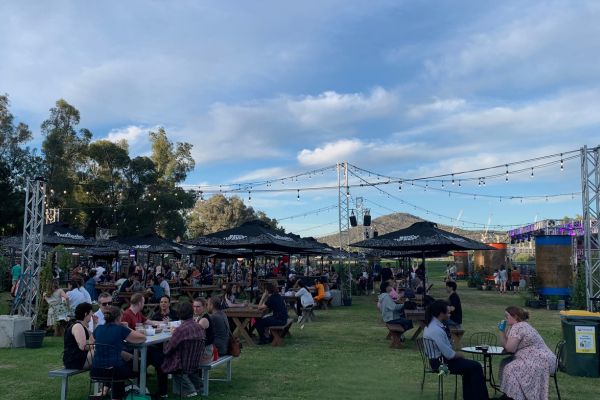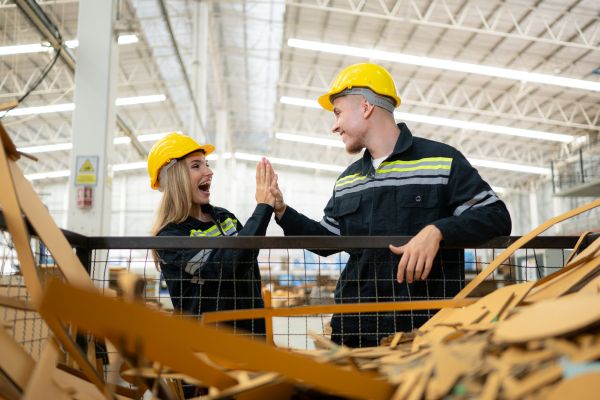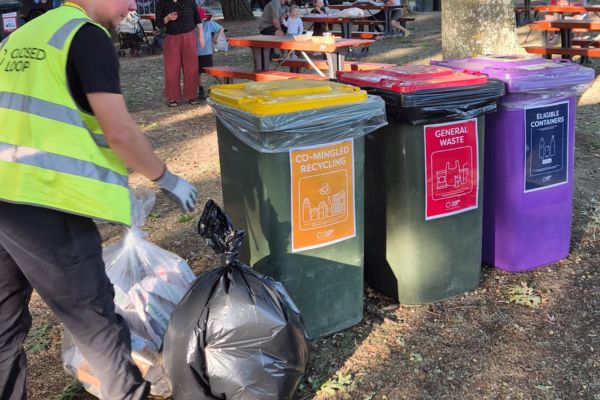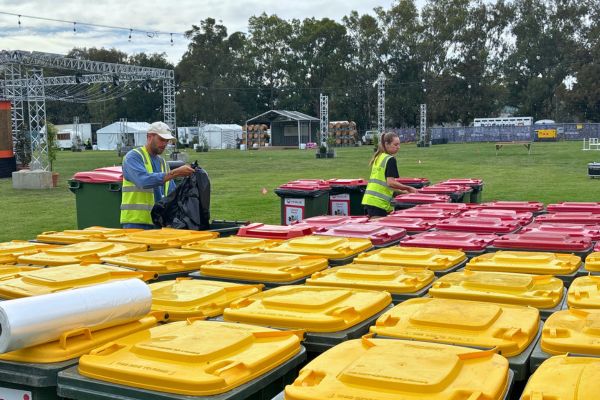Sustainability glossary
Here is a list of terms to help you on your sustainability journey.
Bagasse – Bagasse is a fibrous byproduct of sugarcane.
Biodegradable – Biodegradable refers to a natural process where micro-organisms transform materials into substances such as water, carbon dioxide and biomass over a period of time – this could be from 1 day to 1000 years.
By-product – By-product refers to a secondary product from manufacturing processes or a chemical reaction; it is not the primary product or service being produced.
Carbon footprint – Carbon footprint is the amount of carbon dioxide (CO2) produced through burning fossil fuels, and expressed in tonnes.
Carbon offsetting – Carbon offsetting is the reduction or removal of carbon dioxide or other greenhouse gas emissions from the atmosphere to compensate for emissions made. Carbon offsetting can be seen in projects such as operations to reduce carbon dioxide, reforestation or including renewable energy.
Climate change – Climate change is the long-term shift in global temperatures and weather patterns. These shifts may be natural, such as variations in the solar cycle, or caused by humans through the burning fossil fuels like coal, oil and gas.
Circular economy – The circular economy is a model of production and consumption that focuses on reusing, repairing and recycling materials for as long as possible. Circular economy aims to tackle global challenges like climate change, biodiversity loss, waste, and pollution by focussing on the three base principles of the model which are: eliminating waste and pollution, circulating products and materials, and the regeneration of nature. See more about ‘What is the circular economy?’ here.
Compostable – Compostable refers to a product’s ability to completely break down into non-toxic components (water, carbon dioxide, and biomass) and will not harm the environment (given the right conditions). This includes home compostable and industrial / commercial compostable.
Emissions – Emissions are gases and particles that are put into the air by various sources such as industrial activity, traffic and other factors.
Environmental impact – Environmental impact is the change to the environment (both bad and good) from natural to man-made changes.
Greenhouse gas – Greenhouse gases (GHGs) are gases in the earth’s atmosphere that trap heat and increase the temperature of the planet.
Greenwashing – Greenwashing refers to the false claims of that products or services are environmentally friendly.
Linear economy – The linear economy refers to a ‘take-make-waste’ model, where materials are not used to their full potential. Learn more about the linear economy here.
Natural resources – Natural resources are materials sourced from the Earth. Any natural substance that humans use can be considered a natural resource, e.g. oil, coal, metals, stone, sand, air, water the sun.
Net-zero – Net-zero refers to emitting ‘zero’ carbon emission. This is achieved by reducing emissions and exploring and implementing ways to absorb carbon dioxide from the atmosphere.
PLA – Polylactic Acid (PLA) is a material that is made from renewable resources such as corn starch or sugar cane. PLA is also commercially compostable.
PP – Polypropylene (PP) a synthetic resin which is a polymer of propylene, mainly used to make plastic films, fibres, or moulding materials.
Post-consumer – Post-consumer refers to a product or material that has been already been used by a consumer.
Product stewardship – Product stewardship refers to the overseeing and management of the environmental impacts of products and materials. This spans from the design, production, use and disposal of an item.
Raw material – Raw materials are virgin materials or substances used in the production or manufacturing of goods. Raw materials are not made from recycled content including post- or pre-consumer material.
Recycling – Recycling is the process of transforming waste materials into new materials or products.
Renewable energy – Renewable energy is energy from natural sources.
Single-use – Single-use items are items that are designed to only be used once and then disposed of or destroyed.
Sustainability – Sustainability refers to actions that can be maintained long-term without compromising the balance between economic growth, environmental care and social well-being.
Upcycling – Upcycling refers to when waste is transformed into new materials or products of higher quality for better environmental value. Upcycled products are high-value products made from waste including pre-used materials.
Waste hierarchy – Waste hierarchy is a hierachy of resource and energy consumption from most favourable to least favourable actions. The hierarchy dictates preferred program priorities based on the circular economy. Learn more about the waste hierachy here.
Waste-to-energy (WtE) – Waste-to-energy (or energy-from-waste) is the process of generating energy as electricity and/or heat from the treatment of waste into a fuel source.
Wishcycling – Wishful recycling, or ‘Wishcycling’ is the act of putting something in your recycling bin with only the hope that it is recyclable (when in fact it may not be). There are specific plastics or materials that can be recycled (glass, aluminium, etc.) and some that are not (like soft plastics).
Zero-waste – Zero-waste is a product or service that produces no waste throughout it’s lifecycle such as production, use, end-of-use, packaging .. etc








